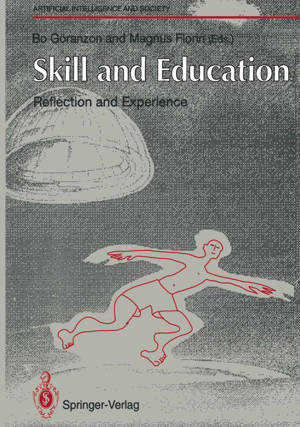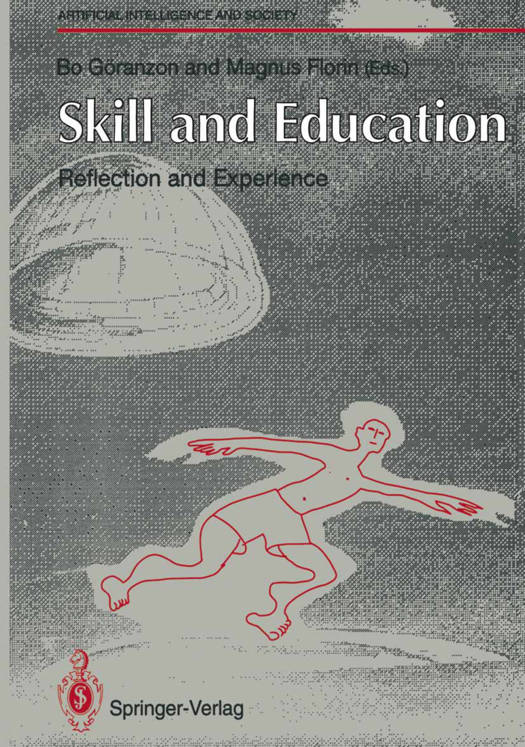
Door een staking bij bpost kan je online bestelling op dit moment iets langer onderweg zijn dan voorzien. Dringend iets nodig? Onze winkels ontvangen jou met open armen!
- Afhalen na 1 uur in een winkel met voorraad
- Gratis thuislevering in België vanaf € 30
- Ruim aanbod met 7 miljoen producten
Door een staking bij bpost kan je online bestelling op dit moment iets langer onderweg zijn dan voorzien. Dringend iets nodig? Onze winkels ontvangen jou met open armen!
- Afhalen na 1 uur in een winkel met voorraad
- Gratis thuislevering in België vanaf € 30
- Ruim aanbod met 7 miljoen producten
Zoeken
Skill and Education: Reflection and Experience
€ 52,95
+ 105 punten
Omschrijving
This book has an important starting point in the conference held in Stockholm in May-June 1988 on Culture, Language and Artifidal Intelligence. It assembled more than 300 researchers and practitioners in the fields of technology, philosophy, history of ideas, literature, linguistics, sodal science etc. The conference was an initiative from the Swedish Center for Working Life, based on the project AI-Based Systems and the Future of Language, Knowledge and Responsibility in Professions within the COST 13 programme of the European Commission. Partidpants in the conference and researchers related to its aims were chosen to contribute to this book. It is preceded by Knowledge, Skill and Artificial Intelligence (ed. B. Göranzon and I. Josefson, Springer-Verlag, 1988), Artifidal Intelligence, Culture and Language (ed. B. Göranzon and M. Florin, Springer-Verlag, 1990) and Dialogue and Technology: Art and Knowledge (ed. B. Göranzon and M. Florin, Springer-Verlag, 1991). The two latter books have the same conference connection as this one, and their aim is to present the contours of a research field with a multitude of issues that demands thorough investigation. The contributors' thinking in this field varies greatly; so do their styles of writing. For example: contributors have varied in their choice of "he" or "helshe" for the third person. No distinc- tion is intended, but chapters have been left with the original usage to avoid extensive changes. Similarly, individual contribu- tor's preference as to notes or reference lists have been followed.
Specificaties
Betrokkenen
- Uitgeverij:
Inhoud
- Aantal bladzijden:
- 291
- Taal:
- Engels
- Reeks:
Eigenschappen
- Productcode (EAN):
- 9783540197584
- Verschijningsdatum:
- 5/10/1992
- Uitvoering:
- Paperback
- Formaat:
- Trade paperback (VS)
- Afmetingen:
- 170 mm x 244 mm
- Gewicht:
- 512 g

Alleen bij Standaard Boekhandel
+ 105 punten op je klantenkaart van Standaard Boekhandel
Beoordelingen
We publiceren alleen reviews die voldoen aan de voorwaarden voor reviews. Bekijk onze voorwaarden voor reviews.










